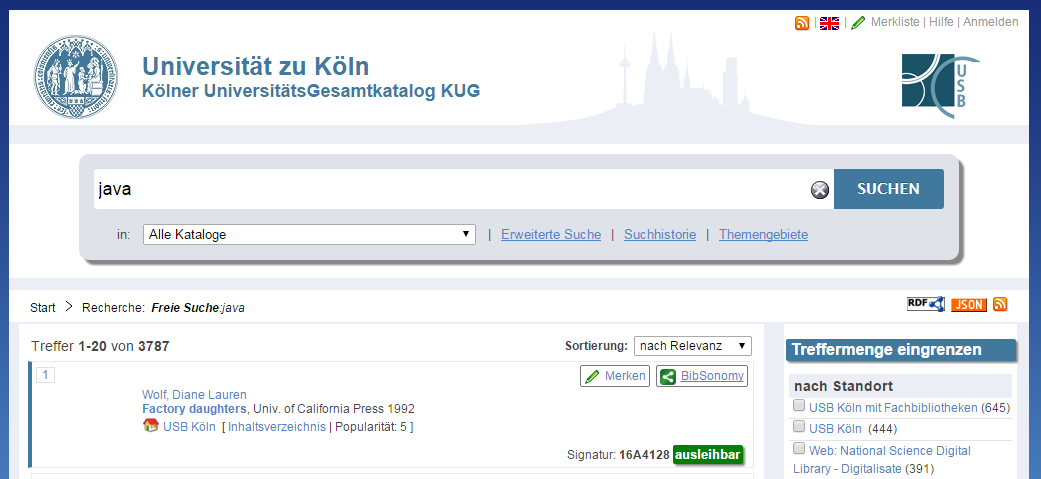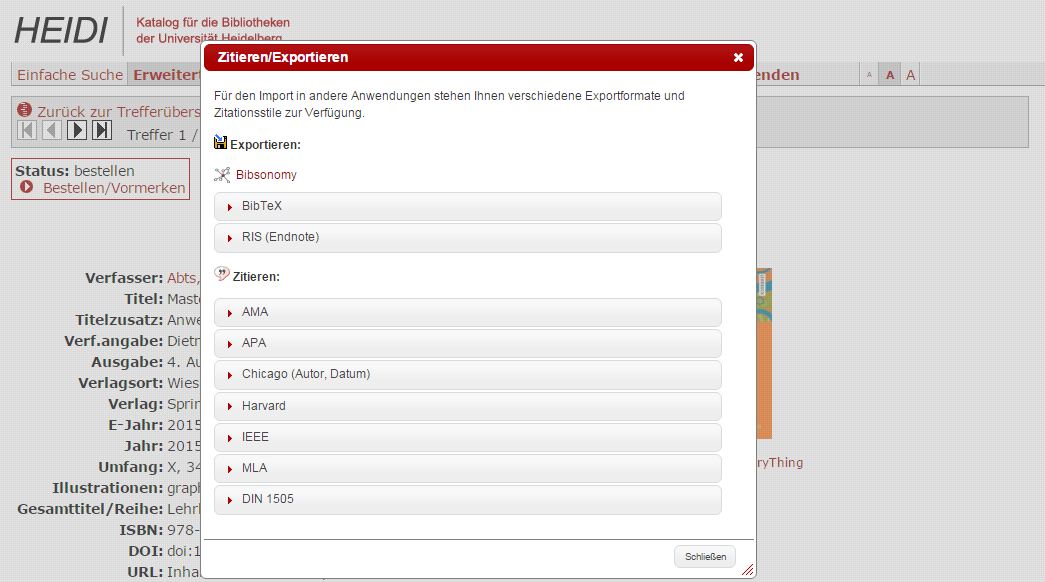Mit PUMA haben Nutzer von Bibliothekskatalogen (Online Public Access Catalogues, OPAC) die Möglichkeit, die aus dem Katalog gezogenen Informationen direkt in PUMA zu kopieren und zu verwalten.
Social Bookmarking verbessert Suche, Erfassung und Verwaltung von digitalen Informationen. Es ermöglicht den Teilnehmern Informationen beizutragen und auszutauschen. Benutzer können die bibliografischen Informationen, die sie aus dem OPAC-Bibliothekskatalog bezogen haben, speichern und mit ihren persönlichen Kommentaren versehen. Zudem ist es möglich, auch in den Ressourcen anderer Nutzer zu forschen und damit die eigene Sammlung um interessante Objekte zu vergrößern. Sie können so zahlreiche Informationsquellen übersichtlich verwalten und sich durch verschiedene Themenbereiche leiten lassen.
Nachfolgend einige Beispiele für die Integration von PUMA in OPAC-Bibliothekskataloge.
Die digitale Bibliothek der Universität Köln hat einen Link auf PUMA eingebunden, um es ihren Nutzern zu ermöglichen, die Suchergebnisse aus dem Katalog direkt in PUMA zu speichern. Wenn Sie auf das grüne PUMA-Symbol (rechts neben einem Eintrag) klicken, werden Sie zu PUMA weitergeleitet. Sie können die Literaturdaten dann nochmals bearbeiten und Informationen hinzufügen.

Die digitale Bibliothek der Universität Heidelberg bietet das Speichern der Metadaten von Büchern und anderen Publikationen in PUMA ebenfalls an. Um Literaturdaten nach PUMA zu extrahieren, klicken Sie auf einen Eintrag in der Ergebnisliste. Rechts oben in der grauen Leiste klicken Sie auf "Exportieren/Zitieren". Dort wählen Sie anschließend PUMA. Sie werden zu PUMA weitergeleitet und können auch hier die Daten vor dem Speichern nochmals bearbeiten.
